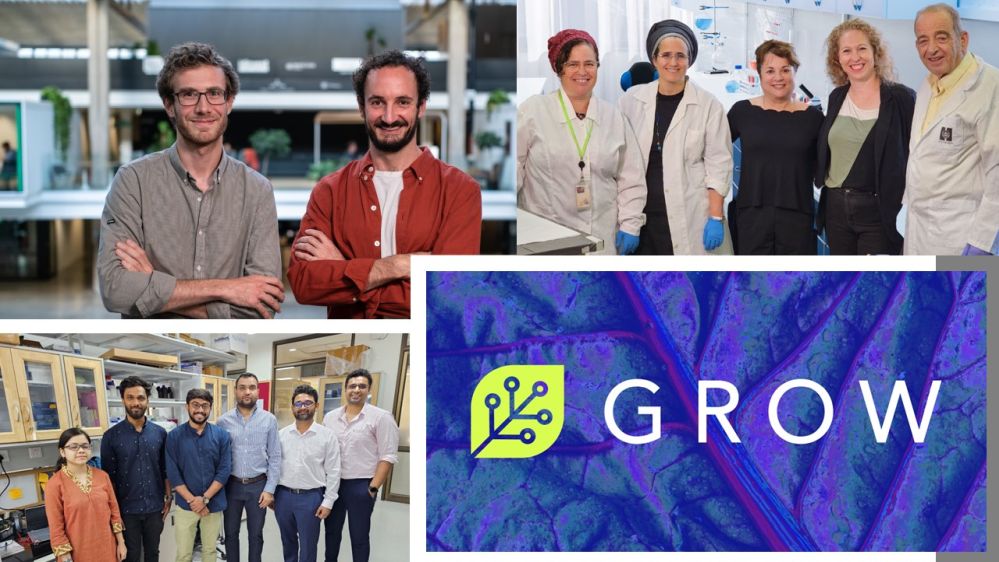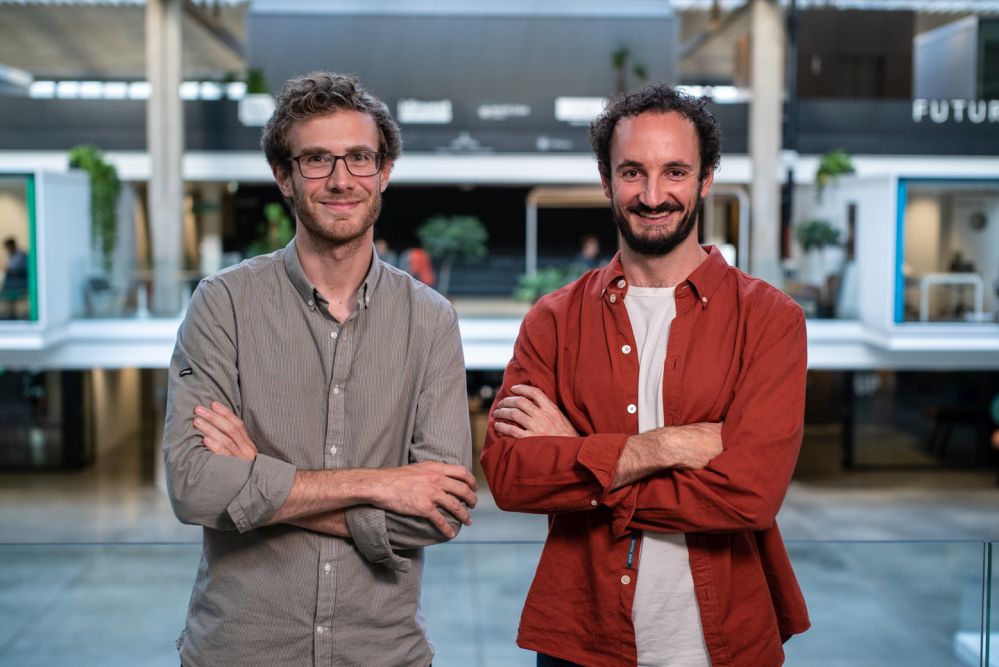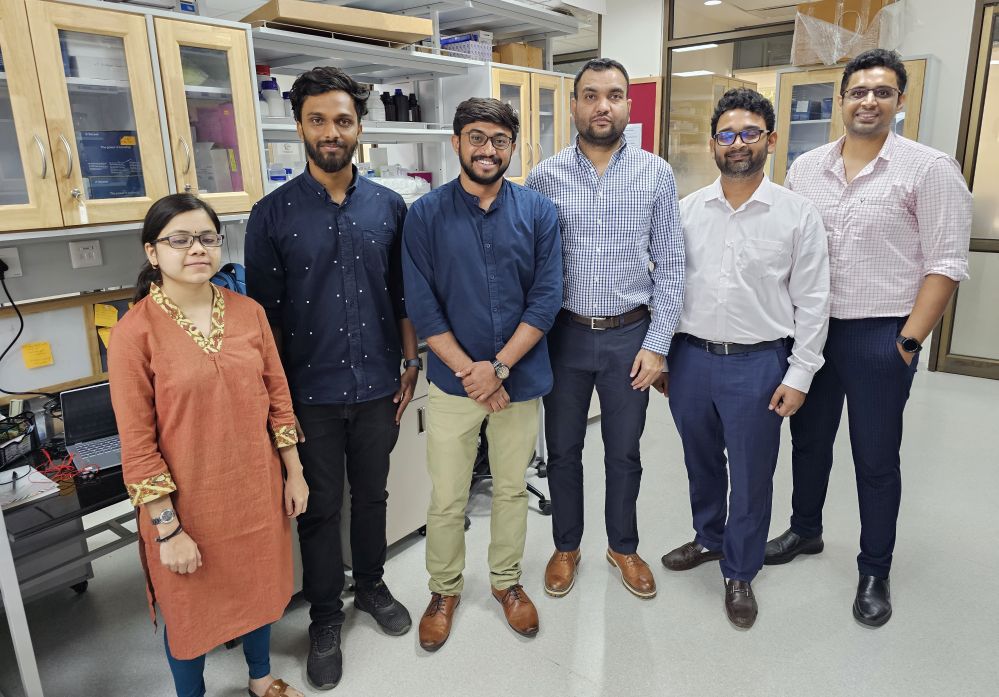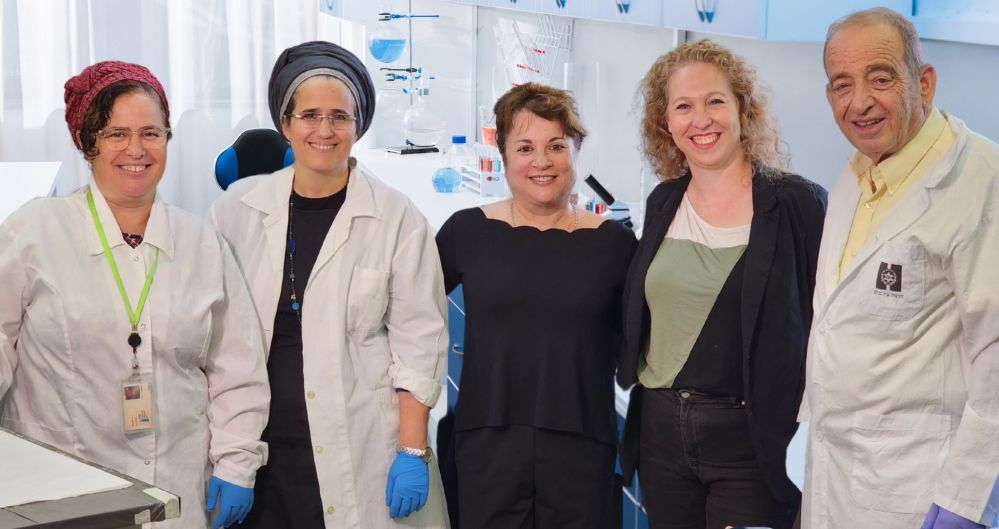- A handheld device linked to smartphones that, with a few drops of milk and in a few minutes, can tell cattle owners if their animals are healthy and whether the quality of milk is up to par.
- A novel, bioactive food ingredient possessing health benefits similar to mothers’ milk that’s extracted from cheese-making waste and that can alleviate chronic inflammation.
- A system to reward rice farmers for adopting simple practices that slash methane emissions, a greenhouse gas 80 times more potent than carbon dioxide.
What do these three initiatives have in common? They’re all real products from entrepreneurs with big ambitions to improve planetary health.

As the world reels from a summer of wild weather that is devastating harvests in countries rich and poor, there is increasing interest in curbing the environmental destruction, enormous waste, and negative health impacts associated with the way food is currently being produced, consumed, and discarded.
For Netta Granot, a veteran with more than two decades of experience in the food industry, it was the idea of a game-changing product that could dramatically improve people’s health while reducing waste that prompted her to co-found and lead Israeli startup Exosomm.
“One in 10 people suffer from inflammatory chronic diseases, like gut inflammation. They are often treated with chemical medicines with many side effects. Imagine if such diseases could be treated by natural foods without any side effects,” she said.
Bangalore-based FaunaTech, meanwhile, is aiming to reduce antibiotics use on animals because drug residues in milk and dairy products could harm human health. Excessive use of antibiotics could also lead to resistant strains of bacteria, which can make both animal and human antibiotics less effective.
“We saw a huge gap in the quality of animal health diagnostics in the current dairy setup and as we continued, we realized there is a big need for diagnostics and quality testing in general,” said cofounder Rajat Pandya.
CarbonFarm, a French start-up using artificial intelligence and satellite imagery to verify carbon credits, is more focused on reducing methane emissions as a priority “because over the next 10 years, 50% of climate warming is going to come from methane,” Vassily Carantino, cofounder and CEO, tells AgFunderNews.
CarbonFarms aims to do that by incentivizing rice farmers to transition to methods of irrigating their paddy fields that produce less methane.
The companies are part of a new cohort of 10 startups selected by the Singapore-based GROW Impact Accelerator backed by agrifoodtech investor AgFunder. (Disclosure: AgFunder is AFN’s parent company.)

Incentivizing rice farmers
Cow burps make headlines regularly for being the biggest source of agricultural methane, but far fewer people know that flooded rice fields are the second largest emitters of that short-lived but potent gas.
Still, a method known as “alternative wetting and drying” where the fields are irrigated intermittently has proven to halve the emissions and reduce water usage by 30% without compromising productivity, says Carantino at CarbonFarm.
“It doesn’t require anything else but imparting knowledge to farmers. There is no investment in infrastructure or anything,” he adds.
Take up has been slow, however, mostly because the vast majority of the world’s rice farmers are poor smallholders who are more concerned with daily survival than taking risks and reducing emissions.
“Essentially, our idea is “How can we incentivize this change in behavior and practices at scale?” So we need a mechanism that works at scale,” he says.
His team settled on using satellites, which allow them to verify the adoption of sustainable practices, quantify the reduction in emissions, certify this reduction in a voluntary carbon market and reward the farmers. These carbon credits could boost farmer incomes by 20%, according to Carantino.
His company is looking to work with actors who have built relationships with rice farmers, such as rice buyers, carbon credit developers, international organzations, and governments, tailoring their services depending on their clients’ needs and familiarity with carbon markets.
They are already working with the United Nations Development Programme on a large-scale Article 6.2 carbon project in Ghana, Caratino says.
He is also aware of the criticism of carbon markets, including charges of greenwashing, double counting, a lack of transparency, and exploitation of local communities.
“I think it’s an industry that has been plagued by greenwashing for years. But we’re seeing a very important change in the market right now. A lot of the buyers are now expecting some sort of carbon regulation in the future. They want to be ready and secure a supply of credits that is of high quality and can withstand the regulator’s scrutiny.”
Caratino says CarbonFarm, which has just closed its seed stage funding round, is providing this transparency, both to the buyers and the farmers.

Happy, healthy cows
Transparency is also a key characteristic of Bangalore-based FaunaTech’s product, even though it is very much rooted to the farm.
Its handheld device is designed to detect critical diseases such as mastitis, the most common infectious disease in dairy animals that could affect both the quality and quantity of milk, right where the farmers and animals are. It is easy to use, cost-effective, provides results within minutes, and can provide multiple benefits to both farmers and the environment, says cofounder Rajat Pandya.
“In our projects, what we’ve seen is that by detecting critical diseases early, there is a 22% increase in milk production, a 55% decrease in mastitis cases, and a huge reduction overall in veterinarian and medication costs for the farmer,” he tells AgFunderNews. “That has led to an increase in farmers’ income by almost $120 – $150 per animal per year.”
“It safeguards human health by allowing the farmers, the manufacturers and the buyers to verify for food safety, quality, and traceability before purchase. Additionally, it also promotes planetary health by minimizing antibiotic usage, which can lead to environmental pollution,” Pandya adds.
FaunaTech, which is in the middle of fundraising for its Series A, has already won awards, such as the 2022 World Food Forum Startup Innovation Awards under the “Better Nutrition” category and is eyeing expansion into diagnostics and testing for fish, meat, poultry, and grains.
“We don’t have to change the hardware, we just have to add different biomarkers on the platform and provide different test kits for each sector,” says Pandya.
For now, it is working with milk unions in India as well as multinational organizations such as Nestlé who are providing the services to the farmers.
While it was designed and developed for small and medium-scale farmers, the device’s price – between $400 to $500 excluding the cost of test panels – is still out of reach for most small scale dairy farmers in developing nations, Pandya said. So he is now also working with partners on a pay-as-you-go model where farmers do not have to buy the device.
“So if you have three animals, you do three tests on a monthly basis, you just pay for three tests. And then you also get additional services along with that like tele veterinary services. We also call it DAAS – diagnostics as a service,” he says.

Like mother’s milk
Exosomm is also focused on dairy products, but is approaching the issue from a completely different angle where a food ingredient can be both a preventative measure and a treatment.
“Our product is a powder based, nano-nutrient ingredient that can be added into any food products to transform them into bioactive food,” says cofounder Netta Granot.
The four founders – three of whom are women – were inspired by the natural wonder of mother’s milk which protects children from a multitude of diseases, which research credits to the presence of exosomes, she added.
Exosomes are membrane-covered nanoparticles which are naturally present in high-concentration in all mammalian milk, including in cows.
This realization led the Exosomm team to come up with a proprietary method for isolating these particles from the milk, creating an ingredient that can be added into food and treat chronic inflammation, according to Granot.
“Our first focus is for people diagnosed with Crohn’s and Colitis (inflammatory bowel diseases), as they suffer from lifelong and incurable conditions.”
“We are isolating our product from the by-product of the cheese industry. So the environmental and circular economy consciousness is very high in our process,” she adds.
Similar to the other two startups, Exosomm’s strategy is to collaborate with the private sector – food companies in this case – which can use its ingredient to fortify their well-known products.
“There are so many considerations to take into account when commercializing food ingredients. There are the production, regulatory, and price perspectives. In my previous positions, I saw how and why ingredients and opportunities didn’t succeed, but with Exosomm it is different,” says Granot.
“Many startups fail to take the product out of the lab and create a successful commercialization process in a factory. Exosomm has a huge advantage with an existing production facility with the necessary equipment.
“So we look for partnerships. You cannot do everything alone. If you want to be in the market, you need to have good allies. The best partner we found is Tnuva, the biggest dairy company in Israel, and they have the capability of the processes that we need to produce the ingredients.”
She believes Exosomm’s product can be commercialized by the beginning of 2025.
GROW: The 2023 cohort
The AgFunder GROW Impact Accelerator launched in 2019 with the aim of supporting the growth of emerging technologies in the agrifood space while strengthening their efforts towards sustainability.
For the 2023 cohort, 10 companies were chosen from over 600 applicants to join the 20-week program, which comes with a $100,000 investment in each company from AgFunder along with access to AgFunder’s co-investors and GROW’s network.
The program culminates in an in-person Demo Day in Singapore on November 2, 2023. Join the waitlist if you are keen to meet these agrifoodtech movers and shakers looking to secure the future of our fragile planet, pitching LIVE for investment and partnership opportunities.
Connect with the startups here.




